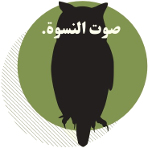Ten years are what epic tales are made of, an odyssey. Setting sail to make movement. I think Sawt wanted a movement as much as Gilgamesh wanted immortality. It shifted its shape, it grew and spilled across borders, it shrunk to pass through keyholes. Setting sail through waters as rough and unpredictable as Beirut-based realities: hurricanes and pirate ships, or going into new waters where we could not see land for months. We scribed messages and sent them out in bottles, we blew into shells to call those who will come after us—those who are already here, who we have met and love, and those still to come—and not all of them from the future. I sailed into other lands, borrowing their memories, their artifacts that seemed so much shinier and more useful than what I saw around me. Although of course, some of these memories and artifacts were dragged to this shore by military ships.
Back home, I wanted to see the ghosts of those gone in their purest form, but they refused to come until I accepted them in their flaws, as they had once lived their lives, their own myths and their falsehoods. I needed to make that journey to come back, otherwise I would still be sitting by the window, waiting for stories only found in wonderland… And somewhere there, was a story of souls who found each other in a different world, and then again in this world. But in this world, they would find out that what tied them together could also transform into a snake-like monster with razor teeth, eating away their good memories. Until finally the crocodile, done with its nap, sighed at them and agreed to share with them Her stories, then maybe, just maybe, they will learn something from it.
In an un-italicized reality
I don’t know what to say. I have so much to say, but I also don’t know what to say. For me, Sawt was a space that allowed me to experiment with writing. I could not write the above passage anywhere else. Sawt was a space where I could use images to do with mythologies and folktales, as much as to issue statements of solidarity, to document, to analyze what was going on. It was a space that understood that we need to experiment, to try different ways to express who we are and where we came from. Sawt was always interested in where we came from.
I have been attracted to seeking and finding our feminist history for quite a long time. It was in Sawt that I learned to let go of a desire for a perfectionism of the past, of some perfect feminists whose lives were purely radical and made me feel like I belonged, and a queer history that could make our beings smile and inspire generations. I do not judge that perfectionism too much, even though it can coil on itself and freeze in hard cynicism. But I also know that perfectionism is the part of me, or a collective us, that wants a better world, that would not accept what is. I know it could also be the fear of making mistakes, or the fear of showing flaws. In Sawt, I started to learn to let go of polished narratives. And it was only because of being in Sawt that I could have moved on to the Knowledge Workshop, and to manage its oral history project.
Sawt is out. We would always say that, sometimes regularly, often with less continuity. But Sawt would always be out, and I hope it always will. I don’t know what will happen after the restructuring process that Sawt is set to go through next, after this final issue. I don’t know what shape it will take, but I hope we always recognize that Sawt being out was never a small matter. It was feminists writing and drawing and talking. I am biased, but I will say that what Sawt has put out are writings and work that really matters. Really smart, really personal, really need to be revisited: to discuss, to celebrate, to revise and change. This is part of our history, and as a history, it is alive amongst us and ever changing. Sawt wanted to be part of a movement, it never saw itself as the movement. And it has to be said through Sara’s vision and her faith, to weather storms and refuse to let Sawt go when that seemed like the easier option. And it was not always easy to carry on. Sometimes it was only a sense of Responsibility to Sawt’s work that kept me going. And finally, in this دعوة للبوح, I want to say that as brave as it is to express and write and speak up, it is just as brave to ask, to listen, to validate. And sometimes, when need be, it also takes bravery to walk away, and to trust that the stories we tell (and please, do tell) are here to stay.
Publisher:
Section:
Category:






